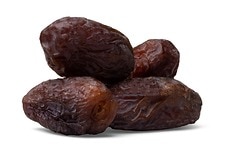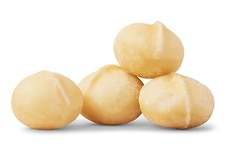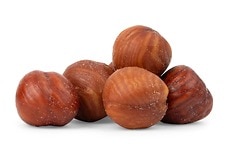Vitamin B2 (Riboflavin)
What is Riboflavin (Vitamin B2)?
Vitamin B2, more commonly known as riboflavin, is a water-soluble vitamin present in a majority of animal and plant tissues. The word “flavin” is derived from the Latin word “flavus” which means yellow. Therefore, vitamin B2 actually gets its name from its color. Riboflavin is one of the essential B vitamins ours bodies need to help support adrenal function, calm and maintain a healthy nervous system, and assist in key metabolic processes.
Benefits of Riboflavin
There are several benefits of vitamin B2 that are essential to maintaining a healthy and happy body. These nutritional benefits include the following:
- Promotes Energy Production: Similar to all B vitamins, riboflavin plays a critical role in the production of energy. It is important both for the energy-producing electron transport chain as well as the metabolism of fat molecules into useful energy. Moreover, vitamin B2 plays a role in helping the body change other energy related nutrients, such as folate and vitamin B6, into usable forms.
- Antioxidant Protection: Riboflavin is one of many nutrients that are required to recycle an antioxidant called glutathione, which is one of the most valuable antioxidants in the human body. It helps prevent cellular damage caused by free radicals, peroxides and heavy metals.
- Promotes Metabolism of Iron: Scientists have found that marginal vitamin B2 status impairs the ability to make red blood cells which leads to anemia. Although there is debate about how this actually occurs, many scientists believe that vitamin B2 is required to mobilize iron from storage to incorporate into cells while a vitamin B2 deficiency would impair iron absorption.
Dietary Sources of Vitamin B2
People who maintain a healthy, well-balanced diet typically get enough riboflavin. The best sources of vitamin B2 come from almonds, whole grains, organic meat, wild rice, dairy products like milk and yogurt, and green vegetables like broccoli, Brussels sprouts, and spinach. It should be noted that riboflavin is actually destroyed by light, so food should be stored away from light to protect it. Also, vitamin B2 can be lost in water when foods are boiled or soaked, so be mindful when cooking foods that are high in riboflavin.
Recommended Daily Intake
The Food and Nutrition Board of the National Academy of Sciences (NAS) has established a set of Recommended Dietary Intakes (RDAs) for vitamin B2. Remember that everyone has different nutritional needs, so please consult a doctor to find out what your specific vitamin needs are. Below are the standard daily recommendations:
- Infants:
- 0-6 months: 0.3 mg
- 6-12 months: 0.4 mg
- 1-3 years: 0.5 mg
- Children:
- 4-8 years: 0.6 mg
- 9-13 years: 0.9 mg
- Teenagers:
- 14-18 years, female: 1.0 mg
- 14-18 years, male: 1.3 mg
- Adults:
- 19+ years, female: 1.1 mg
- 19+ years, male: 1.3 mg
- Pregnant/Nursing:
- Pregnant women: 1.4 mg
- Lactating women: 1.6 mg
Riboflavin Deficiencies and Toxicity
While riboflavin deficiencies are not common (roughly 2% of American adults do not meet the dietary reference intake (DRI) for vitamin B2), it is possible to incur a deficiency. Signs and symptoms of riboflavin deficiency include cracked lips, dry skin, mouth ulcers, red lips, sore throat, and anaemia (iron deficiency). There are two types of riboflavin deficiencies:
- Primary riboflavin deficiency: This deficiency simply results from eating a poor diet that is lacking in vitamin B2.
- Secondary riboflavin deficiency: Occurs when there is another reason for the deficiency. Some possible reasons include conditions that affect riboflavin absorption into the intestines, the body being unable to utilize the vitamin, or an extreme increase in the excretion of the vitamin.
As of now, there is no known toxicity to riboflavin. Since it’s water-soluble, the vitamin is easily excreted from the body. There is a possibility of reactions to extremely high doses which may include itching, numbness, burning sensation, or sensitivity to light.
*This page is for informational purposes only and shouldn't replace medical advice.
Try some Vitamin B2-Rich Foods!
Healthy Eating
- Healthy Snacks
- Healthy Highlights
- 5 Uses for Cacao Powder
- 5 Ways to Eat Farro
- 6 Best Gluten-Free Foods
- Alcohol and the Body
- Almond Flour Recipes
- Anti-Aging Superfoods
- Beat the Afternoon Slump
- Benefits of a Plant-Based Diet
- Benefits of Baobab
- Benefits of Cashews
- Benefits of Coconut Oil for Hair
- Benefits of Coconuts
- Benefits of Dates
- Benefits of Fenugreek
- Benefits of Garcinia Cambogia
- Benefits of Goji Berries
- Benefits of Kale Chips
- Benefits of Monk Fruit Sweetener
- Benefits of Peanuts
- Benefits of Pecans
- Benefits of Pistachios
- Benefits of Pumpkin Seeds
- Benefits of Spelt Flour
- Benefits of Steel Cut Oats
- Benefits of Sunflower Seeds
- Benefits of Tiger Nuts
- Benefits of Turmeric
- Benefits of Walnuts
- Benefits of Wheatgrass
- Best Food Fads
- Cacao vs Cocoa
- Caffeine-Free Energy Foods
- Chocolate That's Good for You
- Diet vs. Exercise
- Fat Burning Foods
- Food Myths Debunked
- Foods for Bone Density
- Foods for Colon Health
- Foods for Healthy Hair
- Foods for Healthy Skin
- Foods to Help Sleep
- Foods to Reduce Stress
- Green Tea Benefits
- Healthy Baking Flours
- Heart Healthy Habits
- High Protein Health Risks
- How to Boost Your Metabolism
- How to Lose Weight While Aging
- How to Throw a Vegan BBQ
- Kaniwa vs Quinoa
- Little Health Foods
- Low-Carb: Fad or Friend?
- Making Healthier Desserts
- Mediterranean Diet Meal Plan
- Natural Beauty Products
- Nuts for Weight Loss
- Preparing Vegan Meals
- Preventing Muscle Degeneration
- Rare Superfoods
- Reduce Sugar Intake
- Save Time By Going Vegan
- Smarter Snack Swaps
- Smoothie Ingredients
- Soy Protein vs Whey Protein
- Starting a Plant-Based Diet
- Steel Cut vs Rolled Oats
- Sugar Substitutes
- Vegan Proteins
- Vegan Substitutions for Fall Recipes
- Why Go Vegan
- Healthy Meals
- Healthy Recipes
- Sports Nutrition
- Nutrition and Special Diets
- 21 Day Fix
- 5 Popular Diet Similarities
- Alkaline Diet
- Anti-Inflammatory Diet
- Calorie Counting
- Carb Cycling Diet
- Celiac Disease
- Cholesterol
- Clean Eating
- Crohn's Disease
- DASH Diet
- Detox Diet
- Diabetes
- Diabetes Diet
- Diet Pill Dangers
- Fat Burning Foods
- Gluten-free Diet
- Glycemic Index
- Heart Health
- High Blood Pressure Diet
- High Fiber Foods
- How to Eat Healthy
- How to Lower Blood Pressure
- Hypertension
- IBS Diet
- Ketogenic Diet
- Liquid Diet
- Low GI Foods
- Low-Carb Diet and Foods
- Low-Fat High-Carb Diet
- Mediterranean Diet
- Mediterranean Diet Foods
- Military Diet
- Nutrition Labels Explained
- Paleo Diet
- Raw Food Diet
- Superfoods
- Sustainable Weight Loss
- Thrive Diet
- Vegan Diet
- Vegetarian Diet
- Weight Loss Shakes
- Whole30



